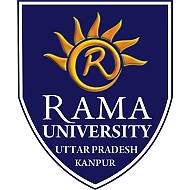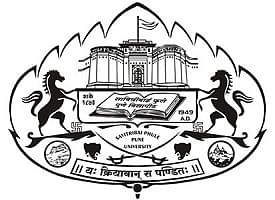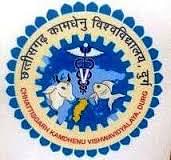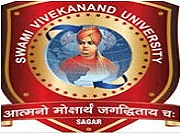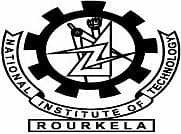Introduction about Ph. D in social communications
PhD in Social Communications from best college is an advanced academic program focused on the study of
communication processes within social contexts. This interdisciplinary field
combines elements of sociology, media studies, psychology, cultural studies,
and communication theory to explore how communication shapes and is shaped by
society. The program prepares students for careers in academia, research,
media, public relations, and various industries where effective communication
is crucial.
Key Aspects of a PhD in Social Communications
Interdisciplinary
Approach:
The program
integrates concepts from various disciplines to provide a comprehensive
understanding of communication phenomena.
Research Focus:
Emphasis on
original research that contributes to the body of knowledge in social
communications. Students are encouraged to investigate contemporary issues,
media effects, cultural impacts, and communication strategies.
Theoretical and
Practical Insights:
Students gain
theoretical knowledge in communication theories, media studies, and social
sciences, as well as practical skills in research methodologies and media
analysis.
Core Areas of Study
Communication
Theories:
Exploration of
major theories in communication, including interpersonal, organizational, mass
media, and digital communication theories.
Media Studies:
Analysis of media
systems, media content, and media effects on society. Study of traditional and
digital media, journalism, and the role of media in shaping public opinion.
Cultural Studies:
Examination of the
relationship between communication and culture, including topics such as
identity, representation, and cultural production.
Sociology of
Communication:
Study of how
communication practices influence and are influenced by social structures,
norms, and institutions.
Research Methods:
Training in
qualitative and quantitative research methods, including content analysis,
surveys, ethnography, and experimental design.
Digital and Social
Media:
Investigation of
the impact of digital technologies and social media on communication practices
and social interactions.
Objectives of a PhD in Social Communications
Advance Knowledge:
Contribute to the
academic field through original research and theoretical advancements in social
communications.
Critical Analysis:
Develop the ability
to critically analyze communication processes and their impact on society.
Communication
Skills:
Enhance skills in
writing, presenting, and disseminating research findings to academic and public
audiences.
Professional
Development:
Prepare for careers
in academia, research institutions, media industries, public relations, and
other communication-related fields.
Career Opportunities
Graduates with a
PhD in Social Communications can pursue diverse career paths, including:
Academia:
Faculty positions
in universities and colleges, teaching communication and media studies courses
and conducting research.
Research:
Positions in
research institutions, think tanks, and public policy organizations focused on
communication research.
Media and
Journalism:
Roles in media
companies, news organizations, and digital media platforms as analysts,
editors, or content creators.
Public Relations
and Marketing:
Positions in PR
firms, marketing agencies, and corporate communication departments.
Non-Profit and
Advocacy:
Communication roles
in non-profit organizations, advocacy groups, and international organizations.
Admission Requirements
Admission to a PhD
program in Social Communications typically includes:
A Master’s degree
in Communication, Media Studies, Sociology, or a related field.
Strong academic
record and research experience.
GRE scores (if
required by the institution).
Letters of
recommendation.
Statement of
purpose outlining research interests and career goals.
English proficiency
test scores (for international applicants).
What is admission process for Ph. D in social
communications ?
The admission process 2024 PhD in Social Communications typically involves several steps
designed to assess the candidate's academic qualifications, research potential,
and fit for the program. Here’s a detailed overview of the typical admission
process:
1. Research Programs and Identify Potential
Advisors
Explore Programs:
Research
universities and their PhD programs in Social Communications to find those that
align with your research interests.
Identify Advisors:
Identify potential
faculty advisors whose research interests match yours. Reach out to them to
discuss potential research projects and confirm their availability to supervise
new students.
2. Prepare Application Materials
Academic
Transcripts:
Collect official
transcripts from all post-secondary institutions attended.
Letters of
Recommendation:
Request 2-3 letters
of recommendation from professors or professionals who can speak to your
academic abilities and research potential.
Statement of
Purpose:
Write a statement
of purpose outlining your research interests, career goals, and reasons for
pursuing a PhD in Social Communications. Mention specific faculty members you
wish to work with and why.
Research Proposal:
Some programs may
require a detailed research proposal outlining your intended research project.
Resume/CV:
Update your resume
or CV to include relevant academic, research, and professional experiences.
Writing Sample:
Submit a writing
sample, such as a published paper, thesis, or a significant research project,
to demonstrate your research and writing skills.
Standardized Test
Scores:
If required,
arrange to take the GRE and have your scores sent to the universities you are
applying to.
English Proficiency
Test Scores:
For international
students, take the TOEFL or IELTS and submit your scores as required.
3. Complete the Application Form
Online Application:
Complete the online
application form for each university. Ensure all required fields are filled out
accurately.
Application Fee:
Pay the application
fee for each program. Fee waivers may be available for eligible candidates.
4. Submit Application
Submit Materials:
Upload or send all
required documents, including transcripts, letters of recommendation, statement
of purpose, research proposal (if required), resume/CV, writing sample, and
test scores by the application deadline.
Tracking:
Keep track of
application deadlines and confirm that all materials have been received by the
university.
5. Interview (if required)
Interview:
Some programs may
require an interview, which can be conducted in-person, over the phone, or via
video conference. Prepare to discuss your research interests, background, and
why you are interested in that particular program.
6. Await Admission Decision
Review Process:
The admissions
committee will review your application materials. This process may take several
weeks to months.
Notification:
You will receive
notification of the admission decision via email or the application portal.
This could include an offer of admission, placement on a waitlist, or a
rejection.
7. Accept Admission Offer
Decision:
If you receive an
offer of admission, review the details, including any funding or assistantship
offers.
Acceptance:
Accept the offer by
the specified deadline and follow any additional instructions provided by the
university.
8. Prepare for Enrollment
Funding and
Housing:
Arrange for funding
(e.g., scholarships, assistantships) and secure housing if needed.
Visa (for
international students):
Apply for a student
visa once you receive the necessary documentation from the university.
Orientation:
Attend orientation
sessions and meet with your advisor to plan your course of study and research.
Summary Checklist
Research programs
and identify potential advisors.
Prepare application
materials: transcripts, letters of recommendation, statement of purpose,
research proposal, resume/CV, writing sample, test scores.
Complete and submit
online application forms.
Pay application
fees.
Participate in
interviews (if required).
Await admission
decisions.
Accept the offer of
admission.
Prepare for
enrollment, including securing funding and housing, and obtaining a student
visa (for international students).
By following these
steps, you can navigate the admission process for a PhD in Social
Communications effectively.
What is eligibility for Ph. D in social
communications?
Eligibility for PhD in Social Communications varies by institution, but generally includes
several key requirements. Here is a comprehensive overview of the typical
eligibility criteria:
Educational Background
Master’s Degree:
A Master's degree
in Communication, Media Studies, Sociology, Cultural Studies, Journalism, or a
related field is typically required. Some programs might accept students with a
Bachelor's degree if they have exceptional academic records and relevant research
experience.
Relevant
Coursework:
Prior coursework in
communication theories, media studies, sociology, cultural studies, and
research methodologies is often expected.
Academic Performance
GPA:
A strong academic
record is essential, typically with a minimum GPA requirement (commonly around
3.0 on a 4.0 scale). Some institutions might have higher GPA requirements.
Research Experience
Research
Background:
Demonstrated
research experience in social communications or related fields through
projects, thesis work, publications, or relevant professional experience is
highly valued.
Standardized Test Scores
GRE:
Some programs
require GRE (Graduate Record Examination) scores, though this requirement is
becoming less common. Specific subject tests may also be required by some
institutions.
Letters of Recommendation
References:
Usually, 2-3
letters of recommendation from academic or professional references who can
attest to the candidate’s qualifications and potential for research are
required.
Statement of Purpose
Research Interests:
A detailed
statement outlining the candidate’s research interests, career goals, and
reasons for pursuing a PhD in Social Communications. This helps the admissions
committee assess the applicant's alignment with the program’s focus areas and
faculty expertise.
Writing Sample
Demonstration of
Research Skills:
A writing sample,
such as a published paper, thesis, or a significant research project, to
demonstrate the candidate’s research and writing skills.
English Proficiency
TOEFL/IELTS:
For international
students, proof of English proficiency through tests like TOEFL or IELTS is
often required.
Application Materials
Transcripts:
Official
transcripts from all post-secondary institutions attended.
Resume/CV:
A current resume or
curriculum vitae detailing academic and professional background.
Research Proposal:
Some programs may
require a detailed research proposal outlining your intended research project.
Additional
Documents:
Any other materials
specified by the program, such as a portfolio, if applicable.
Example Checklist for PhD in Social Communications
Application
Master’s degree in
a relevant field (or
exceptional Bachelor’s degree)
Strong GPA (usually 3.0 or higher)
Research experience and relevant coursework
GRE scores (if required)
Letters of
recommendation (2-3)
Statement of
purpose
Writing sample
Research proposal (if required)
Proof of English
proficiency (for
international students)
Official
transcripts
Resume/CV
Specific Requirements
Institutional
Requirements:
Each university may
have specific additional requirements or variations in these criteria, so it’s
essential to check the specific requirements of the programs to which you are
applying.
By meeting these
eligibility requirements, candidates can strengthen their applications and
improve their chances of being admitted to a PhD program in Social
Communications.
What is syllabus for Ph. D in social communications
?
The syllabus for PhD in Social Communications can vary
significantly depending on the specific program, faculty expertise, and
research focus areas. However, I can provide a general overview of the typical
components that may be included in the curriculum:
Core Coursework
Advanced
Communication Theory:
Exploration of
foundational and contemporary theories in communication studies, including mass
communication theory, interpersonal communication theory, cultural studies, and
critical theories.
Media and Society:
Analysis of the
role of media in shaping social norms, values, and behaviors.
Examination of
media effects, media ethics, and the relationship between media and democracy.
Research Methods in
Communication Studies:
Training in
qualitative and quantitative research methodologies commonly used in
communication research, including surveys, experiments, content analysis,
interviews, and focus groups.
Seminar in Social
Communications:
In-depth
examination of specific topics or issues in social communications, such as
media representation, globalization, digital media, or communication and social
change.
Cultural Studies:
Study of the
relationship between communication, culture, and society.
Analysis of
cultural production, consumption, and identity construction in media texts.
Media Ethics and
Law:
Exploration of
ethical principles and legal regulations governing media practices.
Examination of
issues related to freedom of expression, privacy, censorship, and media
ownership.
Specialized Electives
Students may choose
elective courses based on their research interests. Examples include:
Digital Media and
Society:
Study of the impact
of digital technologies on communication practices, social interactions, and
cultural formations.
Political
Communication:
Analysis of
communication strategies used in political campaigns, public diplomacy, and
social movements.
Study of media
framing, agenda-setting, and political discourse analysis.
Health
Communication:
Examination of
communication processes related to health promotion, risk communication, and
patient-provider interactions.
Analysis of media
representations of health issues and their impact on public perceptions and
behaviours.
Global Media
Studies:
Exploration of
media systems, practices, and representations in a global context.
Study of
transnational media flows, cultural imperialism, and media globalization.
Interpersonal
Communication:
Analysis of
communication dynamics in personal relationships, groups, and organizations.
Study of conflict
resolution, negotiation, and nonverbal communication.
Research Components
Research Seminar:
Participation in a
seminar series focused on research methodologies, current topics in
communication studies, and professional development.
Independent
Research Projects:
Conducting original
research under the supervision of a faculty advisor.
Writing research
proposals, collecting and analyzing data, and presenting findings at
conferences.
Dissertation
Dissertation
Proposal:
Development and
defense of a dissertation proposal outlining the research questions,
methodology, and theoretical framework.
Dissertation
Research and Writing:
Conducting in-depth
research on the chosen topic, writing the dissertation, and presenting findings
in a comprehensive and scholarly manner.
Dissertation
Defense:
Oral defense of the
dissertation before a committee of faculty members.
Presentation of
research findings and responses to questions from the committee members.
Teaching Experience
Teaching
Assistantships:
Opportunities to
assist in teaching undergraduate courses in communication studies.
Gaining experience
in curriculum development, classroom instruction, and student assessment.
Seminars and Workshops
Departmental
Seminars:
Participation in
seminars and workshops organized by the department.
Presentation of
research findings to peers and faculty.
Conferences:
Attendance and
presentation at national and international conferences in communication
studies.
Comprehensive Examinations
Written and/or Oral
Exams:
Comprehensive exams
covering core knowledge in communication theories, research methodologies, and
specialized areas of study.





